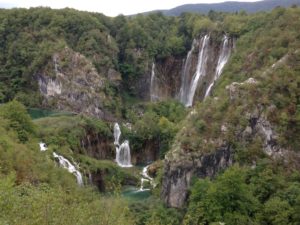 A colleague recently wrote a scathing review of Iceland after his first, and presumably last, visit there. I was stunned. Not because Iceland didn’t satisfy his expectations or interests. That wasn’t surprising. It is the way he assessed the country that shocked me.
A colleague recently wrote a scathing review of Iceland after his first, and presumably last, visit there. I was stunned. Not because Iceland didn’t satisfy his expectations or interests. That wasn’t surprising. It is the way he assessed the country that shocked me.
We all have different interests. That’s a given. Some love cities and are the first to attend new Broadway shows, others prefer hiking in the mountains or diving into the Adriatic, and for some, people-watching from sidewalk cafes while sipping lattes or a glass of fine wine is the only way to go.
We all have different traveling styles too. I get that. Some like tours and cruises, and others prefer to rent a car, buy a train pass, or set out on foot or bicycle to explore. Some insist on traveling first class and others can’t possibly understand why you would want to spend so much money just to sleep or get somewhere. Some eat to live and others live to eat.
And then we all arrive at each experience with personality, preconceptions, and past experiences that set us up for varying degrees of pleasure and disappointment.
So I wasn’t surprised when this big spending, first class, New Yorker-style foodie wasn’t thrilled with Iceland.
No, what stunned me was discovering a whole new level of disconnect between how he and I view travel.
My colleague reviewed the entire country the way you might rate an individual admission-collecting tourist attraction.
- Iceland failed on quality of service as if the whole country were one big tourist attraction and management had hired the wrong citizens and neglected to send them to Disney smile school.
- Iceland failed on physical density of tourist attractions as if the whole country should have been laid out like a zoo to minimize walking between exhibits and maximize the availability of benches in the shade.
- Iceland failed on stylishness because they apparently haven’t banded together and established an identifiable, colorful style, whether upscale New York, Berkshire Birkenstocks, or native costumes from a bygone era.
- Iceland failed because Reykjavík, the capital, is just a small city seemingly without great cultural events and art.
- Iceland failed because the airport, built by American military, wasn’t built for the convenience of tourists.
This way of thinking could not be more different from mine. I don’t want an entire country to change their behavior and be something different for the sake of tourism. I don’t travel to see if McDonald’s has succeeded in exporting the often empty phrases and smiles of American-style customer service. I want to explore and discover what is there, not be entertained and feted – and fooled. To me, learning about the people and the place, the culture and the history, and daily life is what makes travel fascinating and rewarding. Convenience and density of tourist attractions might make things easier, but I learn more when my priorities and notions of convenience get turned on their heads and I see daily life from a new perspective.
I just returned from three weeks in Slovenia, Croatia, and Bosnia-Herzegovina. It was a fabulous trip, but I suspect every country would have failed using the criteria my colleague applied to Iceland.
Did you know Eastern Europeans don’t smile much? They consider smiling a more intimate expression than Americans do and share them primarily with close friends. You can draw other conclusions from this behavior, as we are wont to do, but you would be wrong. No smile does not equate to unfriendly, unhelpful, or uncaring.
It is so important to try to understand how we are the same and different from others. That understanding is critical to communicating, collaborating, solving problems, and getting along with each other. Whether Icelandic fishermen who don’t care much about New York or Paris, Bosniaks still recovering from the ravages of war and interested only in a better life for their children, New York big spenders who think of whole countries as tourist attractions, or each and every employee in your company, they all see the world differently.
And they are all part of the world, part of its problems, and part of its solutions. We all have so much in common. And yet, so many differences. There is simply no substitute for listening, respecting, and trying to understand.
By the way, I thought Iceland was fantastic!
Want to see my trip pictures? Just kidding! Even I probably couldn’t sit through all 1,161 of them!


Comments are closed.